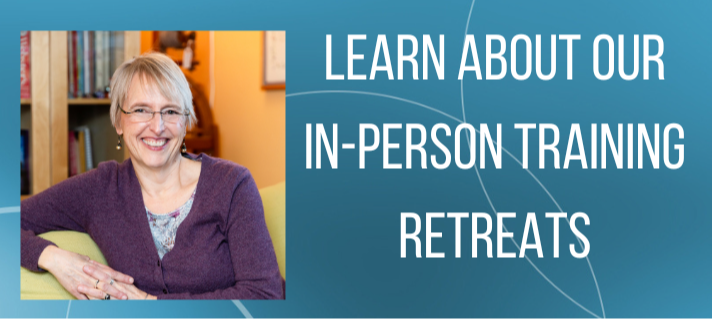Happiness, Desire, Pleasure... and Mindfulness
Feb 21, 2022
Very few people talk about pleasure. And I’m not just referring to sexual pleasure here. We talk about joy, happiness, self-care, enjoyment, and desire…so why not pleasure? My theory is that the word pleasure suggests sex, and sex is icky, shameful, and generally taboo.
Maybe we don’t discuss pleasure because we don’t discuss sex. But that’s really selling pleasure short, because pleasure is our birthright, at every age and stage, with or without sex. And not just simple pleasures, what about big, juicy, complicated pleasures? I know that sounds sexual, but it doesn’t need to be. You could have no interest in sex whatsoever, and experience a lot of pleasure. Since I doubt if anyone wants a life without pleasure, bear with me while I explore the topic.
Pleasure is a topic your clients are unlikely to bring up if you don’t. If you do, you are likely to have to hold up your end of the conversation, because discussing pleasure can be a little uncomfortable, and lots of people haven’t given it much thought. But pleasure has everything to do with desire, happiness, joy…and even sex.
How did I start thinking about this? Perhaps 15 years ago, I embarked on something I like to call the Martha Happiness Project. I wanted to experience more positivity, pleasant feelings and general loveliness in my day to day life. I thought a lot about what makes life feel fun, worthwhile, enjoyable, relaxed, and…well, pleasurable. I really gave some thought to my own personal experience of happiness. And I did a lot of research into what supports happiness generally.
As my own personal Happiness Project developed, it became clear that at the heart of the project was a deceptively small experiment. It had its roots in mindfulness and it can easily be used as a therapy intervention; in fact I use it with nearly every client in one way or another. This core happiness intervention involves noticing, receiving, and expanding pleasure.
Here’s how I did it. When I felt a small inkling of pleasure–for instance, when a sunbeam crosses your cheek–I forced myself to slow down and enjoy it, to actually receive the pleasure rather than rushing along to the next thing on my to-do list. I challenged myself to expand the moment, and let the moment expand me, until I felt a loosening of tension and an experience of receiving.
We think of pleasure as something that just happens to us, rather than something we can consciously choose to engage or not engage with. But it’s amazing how much those small moments can expand when you choose to notice them–and it’s amazing how much potential joy you can miss out on when you don’t take the time to experience those moments.
I was shocked to realize how much enjoyment of life I was rushing past, not noticing, and not actually experiencing. No wonder things felt a little flat. I was astonished to discover how much I could improve my own happiness simply by looking around for little suggestions of possible pleasure, like a shaft of sunlight, a warm breeze, comfortable sheets, a pretty view, the scent of a flower…and then lingering in them, intentionally expanding them, and allowing them to expand me. If this sounds like mindfulness, that’s because it is.
This is what I now describe as receiving–which is, of course, another complex concept that doesn’t get discussed enough. Receiving has components of both mindful presence, and embodiment, so it is not such a simple skill. To make it more complicated (and add another therapeutic layer) most people want to be seen as generous and skilled givers, not enthusiastic and delighted receivers. Ask a group of people which they would rather say, “I love to give” or “I love to receive,” if you need to prove my point. But without receiving, how can there be satisfied givers?
Now that we’re all thinking about pleasure and receiving in the broadest, least sexual context, let’s take these concepts to the topic of sexual relationships.
Consider a client who is feeling distressed because they want to experience more desire than they currently do. A discussion of The (insert client’s name here) Happiness Project is very relevant to desire. When we are so tapped out or rushed or overwhelmed we don’t take time to experience pleasure, and haven’t yet learned to expand and even create it for ourselves, we are unlikely to experience really robust desire. Mindfulness, presence in what would otherwise be a fleeting moment, and an awareness of what one is experiencing in their body are other components of this treatment approach.
I apply these strategies and concepts to nearly every sex therapy case I work with currently. They apply across the board, because they work with a mind/body/spirit connection that is an intrinsic part of both a pleasurable and satisfying life, and a pleasurable and satisfying sexual experience.
At its core, sex is about connection and pleasure. But you wouldn’t know that from how most people go about sex. That’s because we’ve been taught, by our culture and our media, that sex is about performance–about the right things happening, in the right order, in order to make our partner feel good. Sex becomes a means of getting from point A to point B–from the first kiss to orgasm–without much room for slowing down, receiving, luxuriating, and enjoying in between.
In the anxiety of getting that performance right, we often miss out on actually experiencing the pleasure. That’s not a recipe for great sex.
Note that I’m making a distinction here between something pleasurable happening (ex, the sunbeam crosses your cheek) and actually taking in the pleasure (ex, you slow down for 10 or even 30 seconds to really enjoy the warmth of the sunbeam).
That’s what I think is missing in the kind of sex I’m talking about: the capacity to fully receive and revel in the experience of pleasure. Maybe you have an instant of “oh, that feels good,” but then you’re on to “gosh, am I taking too long? Do I look bad in this position? Is she getting turned off?”
What would happen if, instead of just asking ourselves “How can I be a more generous lover?” we also asked ourselves “How can I be a better receiver of pleasure?”
After all, it’s not all that satisfying to be a generous lover if your partner can’t take in the pleasure you’re trying to give them.
Over my years as a sex therapist, I’ve developed a cohesive set of interventions for helping my clients get away from a performance-centered view of sex and move towards one that’s more focused on shared pleasure and connection. That whole process (and much more) is outlined in my online course, Assessing and Treating Sex Issues in Psychotherapy.
All that is beyond the scope of today’s article, but I want to share one small intervention that can help your clients start to build the skill of receiving pleasure. While the exercise is not presented in a sexual context, it can be taken to the bedroom of course. That transition can be quite challenging, which is all the more reason to get plenty of practice receiving.
- Try to notice pleasure when it happens. This could be a delicious smell, a lovely texture, a sweet moment with a loved one, a warm bath, cozy slippers, a sip of coffee–anything that makes you go “ahhhh.”
- Pause. If you’re working on something, put it aside for just a few seconds. Your job now is to let the moment of enjoyment expand a little longer than you would usually allow it to.
- Take a deep breath. Perhaps close your eyes–whatever helps you to gently rest your awareness on the pleasurable sensation. Don’t chase it, just let it in.
- Spend a little while here, receiving this experience and allowing it to expand inside of you until you feel a sense of satisfaction.
- Give yourself a little appreciation; you just improved your own day.
Practice makes perfect. The more you practice receiving pleasure in your day to day life, the easier it will become to apply it to more emotionally charged situations (like sex).






